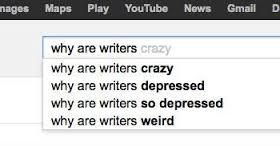Book Reviewers Can be Jerks
Book Reviewers Can be Jerks
By Larry Kahaner
Whether you are a seasoned author or just published your first book, reviews play tricks on your self-confidence as a writer. Like everything else in life, some people like your stuff and some people hate it (thanks, Captain Obvious) and there’s nothing you can do about it.
Every book has its supporters and detractors, and if your head isn’t screwed on, it can be a career killer.
Let me stipulate up front that most reviewers, indeed, the vast majority of reviewers are writing honest, objective reviews. This blog is about the other ones.
I offer some points to remember if you decide to read your reviews. I say ‘if’ because many successful authors never read reviews. I used to think this was BS, but it’s true. These folks understand the reality of reviews.
And here they are:
- Reviews are supposed to be objective, but they’re not. Readers bring themselves into the review based on their own beliefs. Here’s a personal example. I published a book titled AK-47: the Weapon that Changed the Face of War. Pro-gun people said I blamed all the world ills on this ubiquitous weapon. Anti-gun people said that I glorified the weapon. Both can’t be true. Right? I even read one review that chided me for not including more pictures of guns. Hello… it was not a gun-porn book, but a political view of the world’s most-used weapon.
- Some reviewers and readers are pissed off about a specific subject matter so they give a low rating hoping that potential readers will ignore a book. Think books about climate change. Others love the topic so they give a high rating hoping that others of their ilk will buy it and somehow bolster the cause. Neither reviews have anything to do with a book’s merit. Case in point: I once wrote a book about a company called MCI (not the MCI WorldCom that was later involved in a scandal). The title was On The Line. The company beat AT&T in court and this opened the way for competitive long distance phone service. I got hate reviews from those who were angry that AT&T was no longer the country’s de facto monopoly phone company and venerable Ma Bell (youngsters, stay with me on this) was being broken up. Others were glad to see the old monopoly split into regional companies which eventually ushered in the telecommunications system we have today. I even received a letter from David Packard, head of Hewlett-Packard, chiding me for writing about this start-up company which he believed would lead to the downfall of Western civilization. What about the book’s merits? Didn’t really matter. And no sour grapes here by the way. The book did really well.
- Last one: Reviewers are swayed by what the reviewer thinks the author stands for. The classic case is Salman Rushdie who penned a novel in 1988 titled Satanic Verses, which caused a stir among many in the Muslim community. They accused Rushdie of blasphemy, and in 1989 the Ayatollah Ruhollah Khomeini of Iran issued a fatwa ordering Muslims to kill Rushdie. Many death threats followed and Rushdie went into hiding with armed guards. To show their support for Rushdie and their dislike of the Ayatollah many people bought the book – it became a best seller – and critics offered rave reviews because they supported free speech and wanted to strike a blow against radical Islam. It had been reported at the time that many Western consumers bought the book but never read it. They just wanted to make a point. Rushdie says he is not anti-Muslim. He was born into a Muslim family and now considers himself an atheist. By the way, many reviewers wrote about the controversy itself and not the book. That’s not their job.
My final point is this. You can’t please everyone. Mind you, I’m not talking about warranted, even constructive criticism, but make sure a review is about your book and not about you or anything else before you react. Write your book the best way you know how and work on having a thick skin or don’t read reviews at all. Your choice.
Coda: I have a good writing buddy who also is a reviewer for a respected trade publication. I often send him my blogs to gut-check them before posting. He had this remark: “Perfectly reasonable blog, though it will never make anyone feel better about a bad review. They always hurt, even if you know you were treated unfairly.”
—
What if the US were run like a corporation and a madman was in charge? Check out Larry Kahaner’s latest thriller “USA, Inc.” now available in eBook and paperback. All my books have a money-back guarantee.








